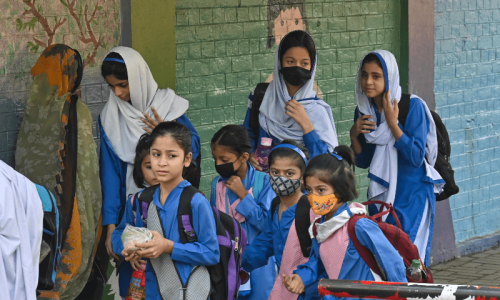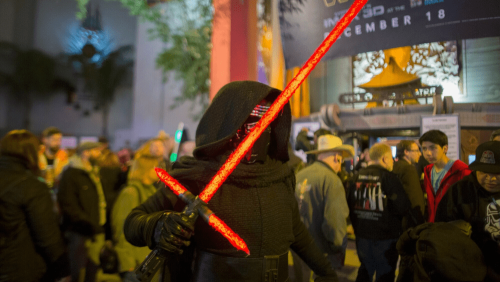MORE often than not, subjective opinions, obscurantist beliefs and deep-rooted prejudices influence judges across the world. Had everyone on the bench thought like Justice Ghulam Safdar Shah in Pakistan’s Supreme Court on a certain fateful day, Z.A. Bhutto would not have been hanged.
Political exigency, ethnic tutoring, religious zeal and fear for their jobs are thought to have led some of the judges to inflict an unconscionable blow on Pakistan in that particular case.
In this sense, getting justice and a fair deal from the courts and thereby from the state is a matter of luck — a kind of lottery.
Recently, India’s Supreme Court gave many a liberal campaigner a fleeting moment of pride in the country’s exalted institution when a two-member bench chided the government over last year’s suspected cold-blooded murder by the police of a Maoist leader and a journalist accompanying him.
“Our republic cannot behave like this and kill its own children,” observed the court movingly. “We hope there will be an answer ... a good and convincing answer. The government will have to answer so many questions.”
Judgments in India are replete with similar examples of sagacity and integrity. Unfortunately though, it is not always so. Take last week’s comments by the Supreme Court in a case in which the death sentence of the killer of an Australian missionary and his two sons in 1999 was commuted to life.
Upholding the High Court’s life sentence awarded to Bajrang Dal activist Dara Singh for the killings, a bench said on Friday: “In the case on hand, though Graham Staines and his two minor sons were burnt to death while they were sleeping inside a station-wagon at Manoharpur, the intention was to teach a lesson to Graham Staines about his religious activities, namely, converting poor tribals to Christianity.”
Naturally, there were howls of protest from human rights activists. The Supreme Court, to its credit, expunged the remarks on Tuesday but kept the verdict that flowed from the tendentious opinions of the judges.
Of course, judges are not made from any different clay and they must reflect the prevailing turmoil within society. That right-wing groups have benefited from the malaise is illustrated in untenable outcomes they forced on society through what can only be described as legal subterfuge.
Artist M.F. Hussain, social activist Binayak Sen and writer Arundhati Roy are among thousands that have been at the receiving end of the subjectivity of junior and senior judiciary. They have suffered from legal opinions that showed no link with the spirit of the largely liberal Indian constitution.
In the judiciary’s waywardness the media has emerged as a major accomplice. In India, there are excellent reasons to accept this view. It took a near miraculous confession by a contrite terrorist from the Hindutva flock for incarcerated Muslims to begin to expect justice. Call it a miracle, call it a lottery, but there was no hope for the tortured boys before Swami Aseemanand’s confession jolted the system out of its stupor.
An example would be in order. There was this particular reporter from the respected newspaper The Hindu who was stationed for years as its Kashmir correspondent. His word on terrorism counted for a lot. If we go back to the old files, with reference to every bomb attack or act of subversion Aseemanand has owned up to, including the firebombing of the Samjhauta Express, this reporter was quoting the intelligence sources as pointing to Muslim organisations.
The Hindu is known to have a policy of saying mea culpa for its more serious mistakes but we haven’t yet seen a correction on this one. Aseemanand, however, set the record straight. And The Hindu was not the only news group indulging in the dangerously misleading reporting.
For better or worse, eventually what the media says does seem to find place in the outcome of judgments. The amazing verdict in India’s parliament attack case deserves a second look. The judgment said: “The incident, which resulted in heavy casualties, had shaken the entire nation and the collective conscience of the society will only be satisfied if capital punishment is awarded to the offender.”
Was the punishment given to assuage the collective national conscience, and if so, what role did the media play in creating the conscience? One must add that what is presented as this conscience may be the consciousness of a section of dominant middle classes. There were 13 questions asked by members of the civil society in the parliament attack case. So far, none have been answered.
Let me conclude with two questions from the list which, in view of Aseemanand’s confessions, acquire an importance which may have escaped the courts.
The courts acknowledged that Afzal Guru was a surrendered militant who was in regular contact with the security forces, particularly the STF of Jammu and Kashmir police. How do the security forces explain the fact that a person under their surveillance was able to conspire in a major militant operation?
On Dec 19, 2001, six days after the parliament attack, police commissioner S.M. Shangari identified one of the attackers who was killed as Mohammad Yasin Fateh Mohammed (alias Abu Hamza) of the Lashkar-i-Taiba, who had been arrested in Mumbai in November 2000 and immediately handed over to the Jammu and Kashmir police. He gave detailed descriptions to support his statement. If police commissioner Shangari was right, how did Yasin, a man in the custody of the Jammu and Kashmir police, end up participating in the parliament attack? If he was wrong, where is Yasin now? The lottery is on.
The writer is Dawn’s correspondent in Delhi.











































Dear visitor, the comments section is undergoing an overhaul and will return soon.